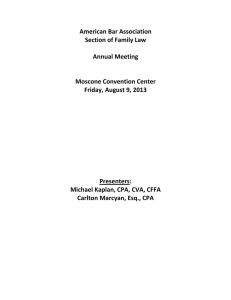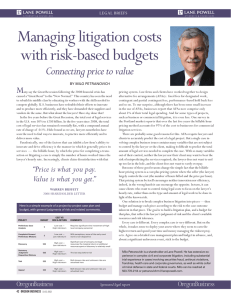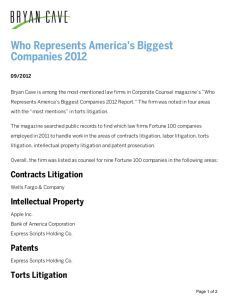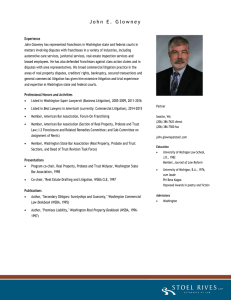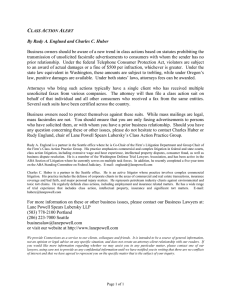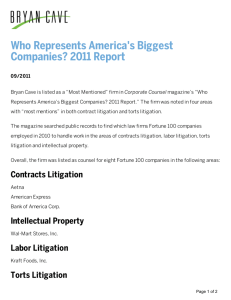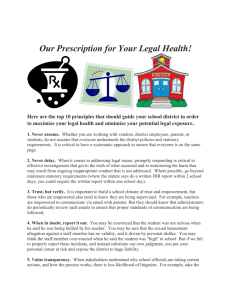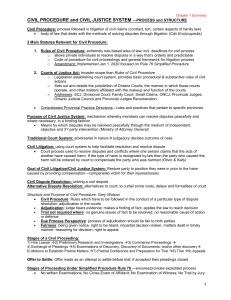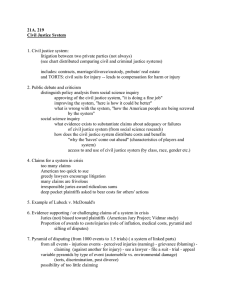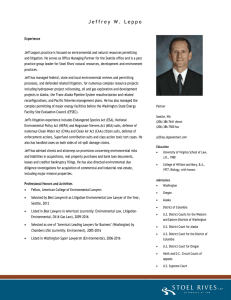Thoughts on Course Selection - The University of Michigan Law
advertisement
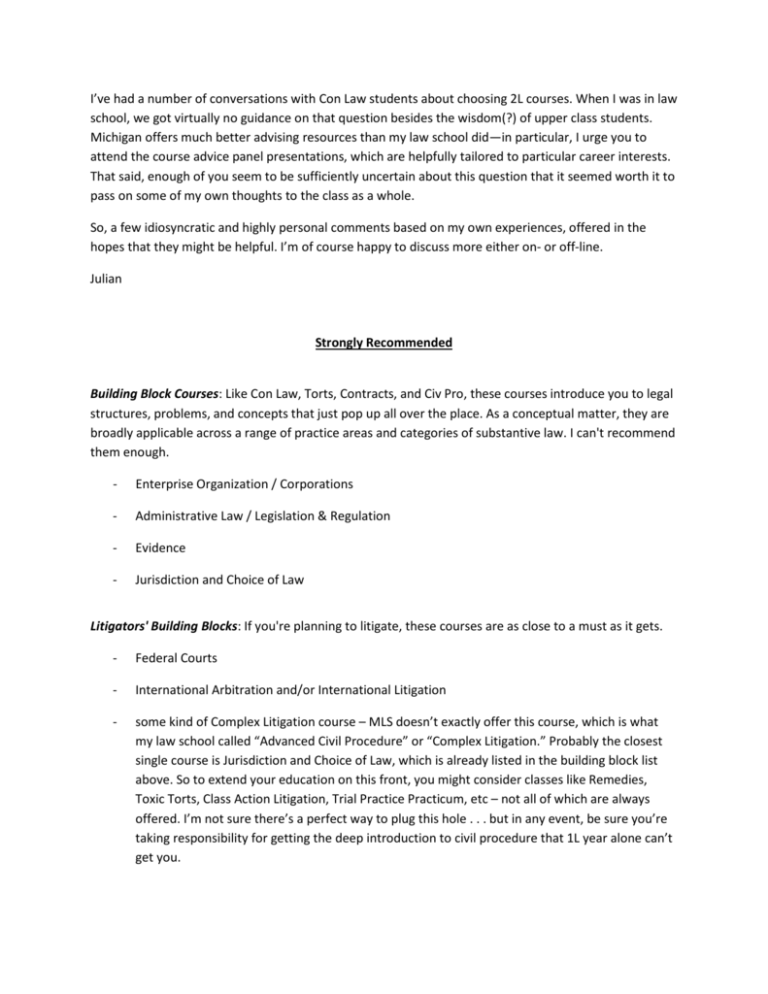
I’ve had a number of conversations with Con Law students about choosing 2L courses. When I was in law school, we got virtually no guidance on that question besides the wisdom(?) of upper class students. Michigan offers much better advising resources than my law school did—in particular, I urge you to attend the course advice panel presentations, which are helpfully tailored to particular career interests. That said, enough of you seem to be sufficiently uncertain about this question that it seemed worth it to pass on some of my own thoughts to the class as a whole. So, a few idiosyncratic and highly personal comments based on my own experiences, offered in the hopes that they might be helpful. I’m of course happy to discuss more either on- or off-line. Julian Strongly Recommended Building Block Courses: Like Con Law, Torts, Contracts, and Civ Pro, these courses introduce you to legal structures, problems, and concepts that just pop up all over the place. As a conceptual matter, they are broadly applicable across a range of practice areas and categories of substantive law. I can't recommend them enough. - Enterprise Organization / Corporations - Administrative Law / Legislation & Regulation - Evidence - Jurisdiction and Choice of Law Litigators' Building Blocks: If you're planning to litigate, these courses are as close to a must as it gets. - Federal Courts - International Arbitration and/or International Litigation - some kind of Complex Litigation course – MLS doesn’t exactly offer this course, which is what my law school called “Advanced Civil Procedure” or “Complex Litigation.” Probably the closest single course is Jurisdiction and Choice of Law, which is already listed in the building block list above. So to extend your education on this front, you might consider classes like Remedies, Toxic Torts, Class Action Litigation, Trial Practice Practicum, etc – not all of which are always offered. I’m not sure there’s a perfect way to plug this hole . . . but in any event, be sure you’re taking responsibility for getting the deep introduction to civil procedure that 1L year alone can’t get you. Recommended Skills Courses: Both of these classes can be extremely useful in practice. It's unlikely as a practical matter that anyone will take them both. But it's a hard for me to recommend one over the other. - Accounting for Lawyers - These issues recur and recur in so many practice areas. - Statistics for Lawyers - It is incredibly valuable to understand basic statistical reasoning well enough to be an intelligent consumer of it – and in particular to have a sense for the right questions to ask when you see it. Context Courses: While not truly essential, these courses get at how the law today fits into a broader historical story. This can be incredibly useful. As we're discovering repeatedly in Con Law, often you can only understand the state of affairs today with reference to where we started out. - A “History of Law” class - The broader the better; best if focused on Anglo-American law and not just American law. - Jurisprudence - Probably more academic/ivory-tower-y than many will be interested in. but well worth considering. High-Value Topic Courses: These are specific to particular subject areas rather than conceptually generalist, so they don't quite fit in the true category of conceptual “building blocks.” But they pop up again and again and again in practice. I'd consider picking 3-5 off the list below even if they don't seem closely related to your ultimate practice goals. I've listed them more or less in the order that I'd consider them, but my preferences are probably idiosyncratic. - Tax - Commercial Transactions (UCC Sales, Secured Financing, etc.) - Criminal Procedure - Investigation & Police Conduct - Bankruptcy - Intellectual Property (trademark/patent/copyright) - Securities Regulation and/or Financial Institutions - Trusts and Estates The Rest of Your Curriculum For the most part, it's obvious: if you're interested in being an intellectual property lawyer; cluster a bunch of IP classes. If you're interested in transactional law, cluster a bunch of those classes. If you’re interested in public interest or government law, take Civil Rights Litigation and the Fourteenth Amendment and a cluster of classes that focus on the particular PI topics you’re interested in. Et cetera. With that said, the following guidelines are worth considering: 1. Strongly consider a clinic. Particularly one that has some relevance to areas where you might like to practice. (And note re that – the connection might be because of the substantive topic, . . . . but it might also be because of the generic skills the clinic develops!) Here’s why I’ve come to see clinics as so important: Once you join the world of practice, there is rarely much attention paid to developing you as a lawyer. Organizations talk a good game about this, but they generally do a lousy job following through. For the most part, you have to figure out most stuff yourself on the fly and hope for the best. When I was in law school, I didn't remotely appreciate the value of practicing law under the direct supervision of a teacher who spends a lot of time thinking about you as a student -- not just for a boss who is focusing on winning this case or completing this deal. 2. Take a course or two by professors just because you hear they're excellent. Part of the learning process is stimulating your own interest. And creative and interesting people can bring out the creative, interesting, and worthwhile aspects of literally any topic. You’ll see things you didn’t expect to see, and learn to think in ways you hadn’t thought. 3. Relatedly, try to take a good diversity of profs over the course of your time here. Lawyers think in lots of different ways; getting exposed to different styles and approaches is very, very helpful. Forceful personalities can make it seem like things necessarily work a particular way; it’s a nice antidote to that (and a good inoculation of humility for yourself!) to realize that there are lots of ways of thinking, and lots of ways of being a superlative lawyer. 4. Take at least one seminar that really interests you -- although I think the writing requirement may actually force this.
